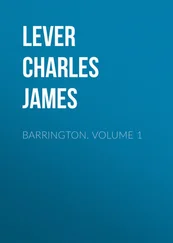Charles Lever - Roland Cashel, Volume II (of II)
Здесь есть возможность читать онлайн «Charles Lever - Roland Cashel, Volume II (of II)» — ознакомительный отрывок электронной книги совершенно бесплатно, а после прочтения отрывка купить полную версию. В некоторых случаях можно слушать аудио, скачать через торрент в формате fb2 и присутствует краткое содержание. Жанр: literature_19, foreign_antique, foreign_prose, на английском языке. Описание произведения, (предисловие) а так же отзывы посетителей доступны на портале библиотеки ЛибКат.
- Название:Roland Cashel, Volume II (of II)
- Автор:
- Жанр:
- Год:неизвестен
- ISBN:нет данных
- Рейтинг книги:5 / 5. Голосов: 1
-
Избранное:Добавить в избранное
- Отзывы:
-
Ваша оценка:
- 100
- 1
- 2
- 3
- 4
- 5
Roland Cashel, Volume II (of II): краткое содержание, описание и аннотация
Предлагаем к чтению аннотацию, описание, краткое содержание или предисловие (зависит от того, что написал сам автор книги «Roland Cashel, Volume II (of II)»). Если вы не нашли необходимую информацию о книге — напишите в комментариях, мы постараемся отыскать её.
Roland Cashel, Volume II (of II) — читать онлайн ознакомительный отрывок
Ниже представлен текст книги, разбитый по страницам. Система сохранения места последней прочитанной страницы, позволяет с удобством читать онлайн бесплатно книгу «Roland Cashel, Volume II (of II)», без необходимости каждый раз заново искать на чём Вы остановились. Поставьте закладку, и сможете в любой момент перейти на страницу, на которой закончили чтение.
Интервал:
Закладка:
“If the world were made up of men like yourself and my old friend, this would be, doubtless, the readiest and the best solution of the difficulty,” said Tiernay; “but what would be said if we consented to such an arrangement? What would not be said? Ay, faith, there’s not a scandalous rumor that malice could forge would not be rife upon us.”
“And do you think such calumnies have any terror for me? ” cried Cashel.
“When you’ve lived to my age, sir, you’ll reason differently.”
“It shall be all as you wish, then,” said Cashel. “But stay!” cried he, after a moment’s thought; “there is a difficulty I had almost forgotten. I must look that it may not interfere with our plans. When can I see you again? Would it suit you to come and breakfast with me tomorrow? I ‘ll have my man of business, and we ‘ll arrange everything.”
“Agreed, sir; I’ll not fail. I like your promptitude. A favor is a double benefit when speedily granted.”
“Now I shall ask one from you, doctor. If I can persuade my kind friends here to visit us, will you too be of the party sometimes?”
“Not a bit of it. Why should I, sir, expose you to the insolent criticism my unpolished manners and rude address would bring upon you – or myself to the disdain that fashionable folk would show me? I am proud – too proud, perhaps – at the confidence you would repose in my honor; I don’t wish to blush for my breeding by way of recompense. There, sir, – there is one yonder in every way worthy all the distinction rank and wealth can give her. I feel happy to think that she is to move amongst those who, if they cannot prize her worth, will at least appreciate her fascinations.”
“Will Mr. Corrigan consent?”
“He must, – he shall,” broke in Tiernay; “I’ll insist upon it But come along with me into the cottage, while the ladies are cementing their acquaintance; we’ll see him, and talk him over.”
So saying, he led Cashel into the little library, where, deep sunk in his thoughts, the old man was seated, with an open book before him, but of which he had not read a line.
“Con!” cried Tiernay, “Mr. Cashel has come to bring you and Miss Mary up to the Hall to dinner. There, sir, look at the face he puts on, – an excuse in every wrinkle of it!”
“But, my dear friend – my worthy doctor – you know perfectly – ”
“I ‘ll know perfectly that you must go, – no help for it I have told Mr. Cashel that you ‘d make fifty apologies – pretend age – Ill-health – want of habit, and so on; the valid reason being that you think his company a set of raffs, and – ”
“Oh, Tiernay, I beg you ‘ll not ascribe such sentiments to me .”
“Well, I thought so myself, t’ other day, – ay, half-an-hour ago; but there is a lady yonder, walking up and down the grass-plot, has made me change my mind. Come out and see her, man, and then say as many ‘No’s’ as you please.” And, half-dragging, half-leading the old man out, Tiernay went on: —
“You ‘ll see, Mr. Cashel, how polite he ‘ll grow when he sees the bright eyes and the fair cheek. You ‘ll not hear of any more refusals then, I promise you.”
Meanwhile, so far had Lady Kilgoff advanced in the favorable opinion of Miss Leicester that the young girl was already eager to accept the proffered invitation. Old Mr. Corrigan, however, could not be induced to leave his home, and so it was arranged that Lady Kilgoff should drive over on the following day to fetch her; with which understanding they parted, each looking forward with pleasure to their next meeting.
CHAPTER V. LINTON’S MYSTERIOUS DISAPPEARANCE
“Gone! and in secret, too!”
Amid all the plans for pleasure which engaged the attention of the great house, two subjects now divided the interest between them. One was the expected arrival of the beautiful Miss Leicester, – “Mr. Cashel’s babe in the wood,” as-Lady Janet called her, – the other, the reading of a little one-act piece which Mr. Linton had written for the company. Although both were, in their several ways, “events,” the degree of interest they excited was very disproportioned to their intrinsic consequence, and can only be explained by dwelling on the various intrigues and schemes by which that little world was agitated.
Lady Janet, whose natural spitefulness was a most catholic feeling, began to fear that Lady Kilgoff had acquired such an influence over Cashel that she could mould him to any course she pleased, – even a marriage. She suspected, therefore, that this rustic beauty had been selected by her Ladyship as one very unlikely to compete with herself in Roland’s regard, and that she was thus securing a lasting ascendancy over him.
Mrs. Leicester White, who saw, or believed she saw, herself neglected by Roland, took an indignant view of the matter, and threw out dubious and shadowy suspicions about “who this young lady might be, who seemed so opportunely to have sprung up in the neighborhood,” and expressed, in confidence, her great surprise “how Lady Kilgoff could lend herself to such an arrangement.”
Mrs. Kennyfeck was outraged at the entrance of a new competitor into the field, where her daughter was no longer a “favorite.” In fact, the new visitor’s arrival was heralded by no signs of welcome, save from the young men of the party, who naturally were pleased to hear that a very handsome and attractive girl was expected.
As for Aunt Fanny, her indignation knew no bounds; indeed, ever since she had set foot in the house her state had been one little short of insanity. In her own very graphic phrase, “She was fit to be tied at all she saw.” Now, when an elderly maiden lady thus comprehensively sums up the cause of her anger, without descending to “a bill of particulars,” the chances are that some personal wrong – real or imaginary – is more in fault than anything reprehensible in the case she is so severe upon. So was it here. Aunt Fanny literally saw nothing, although she heard a great deal. Daily, hourly, were the accusations of the whole Kennyfeck family directed against her for the loss of Cashel. But for her, and her absurd credulity on the statement of an anonymous letter, and there had been no yacht voyage with Lady Kilgoff – no shipwreck – no life in a cabin on the coast – no – In a word, all these events had either not happened at all, or only occurred with Livy Kennyfeck for their heroine.
Roland’s cold, almost distant politeness to the young ladies, was marked enough to appear intentional; nor could all the little by-play of flirtation with others excite in him the slightest evidence of displeasure. If the family were outraged at this change, poor Livy herself bore up admirably; and while playing a hundred little attractive devices for Cashel, succeeded in making a very deep impression on the well-whiskered Sir Harvey Upton, of the – th. Indeed, as Linton, who saw everything, shrewdly remarked, “She may not pocket the ball she intended, but, rely on’t, she ‘ll make a ‘hazard’ somewhere.”
Of all that great company, but one alone found no place in her heart for some secret wile; this was Miss Meek, who, sadly disappointed at the little influence of her royalty, had ceased to care much for in-door affairs, and spent her mornings “schooling” with Charley, and her evenings listening to sporting talk whenever two or three “fast men” got together in the drawing-room.
The evening that preceded Miss Leicester’s intended arrival had been fixed for the reading of Mr. Linton’s comedy, – a little dramatic piece, which, whether he had stolen wholesale from the French, or only borrowed in part, none knew; but various were the rumors that it would turn out to be a very satirical composition, with allusions to many of those who were to sit in judgment over it. How this supposition originated, or with whom, there is no saying, nor if well-founded in any respect, for Linton had never shown his sketch to any one, nor alluded to it, save in the most vague manner.
Читать дальшеИнтервал:
Закладка:
Похожие книги на «Roland Cashel, Volume II (of II)»
Представляем Вашему вниманию похожие книги на «Roland Cashel, Volume II (of II)» списком для выбора. Мы отобрали схожую по названию и смыслу литературу в надежде предоставить читателям больше вариантов отыскать новые, интересные, ещё непрочитанные произведения.
Обсуждение, отзывы о книге «Roland Cashel, Volume II (of II)» и просто собственные мнения читателей. Оставьте ваши комментарии, напишите, что Вы думаете о произведении, его смысле или главных героях. Укажите что конкретно понравилось, а что нет, и почему Вы так считаете.












